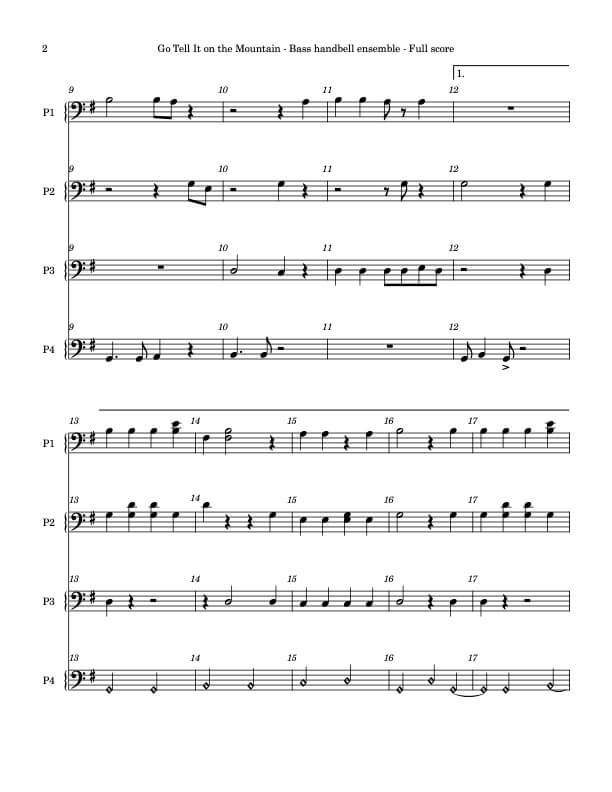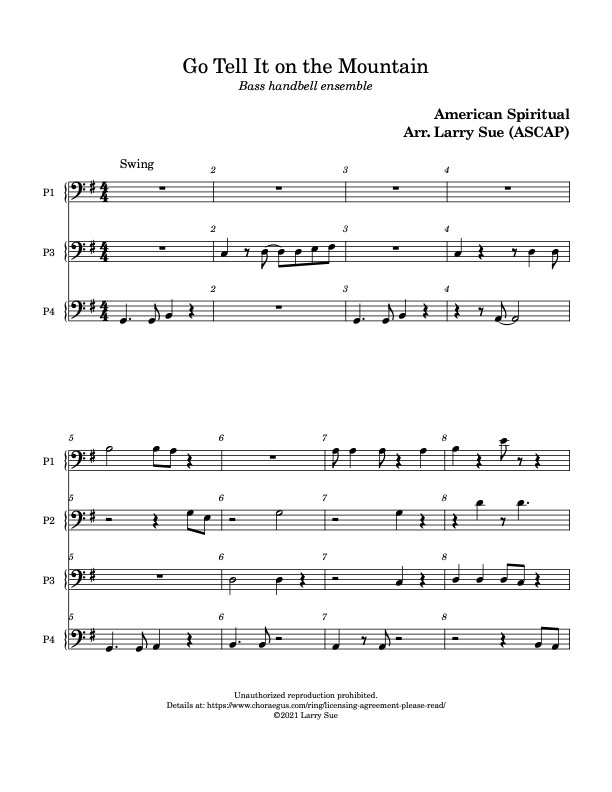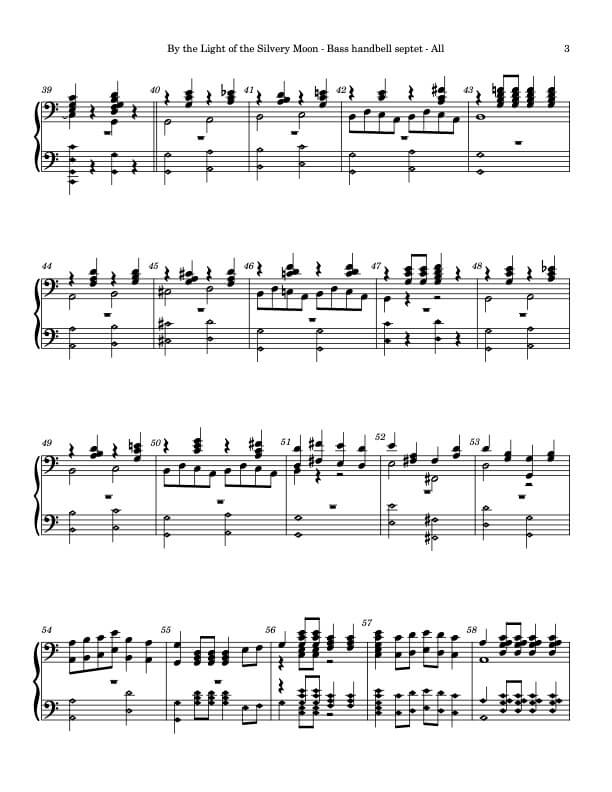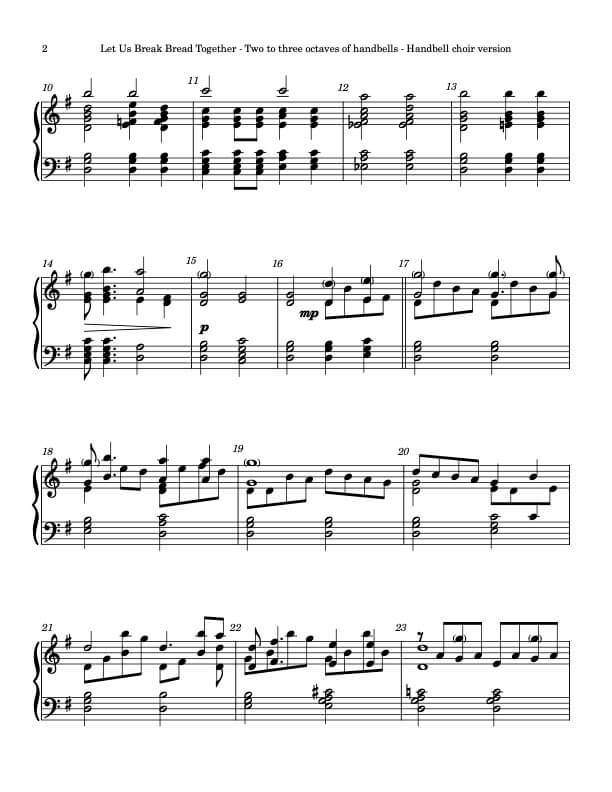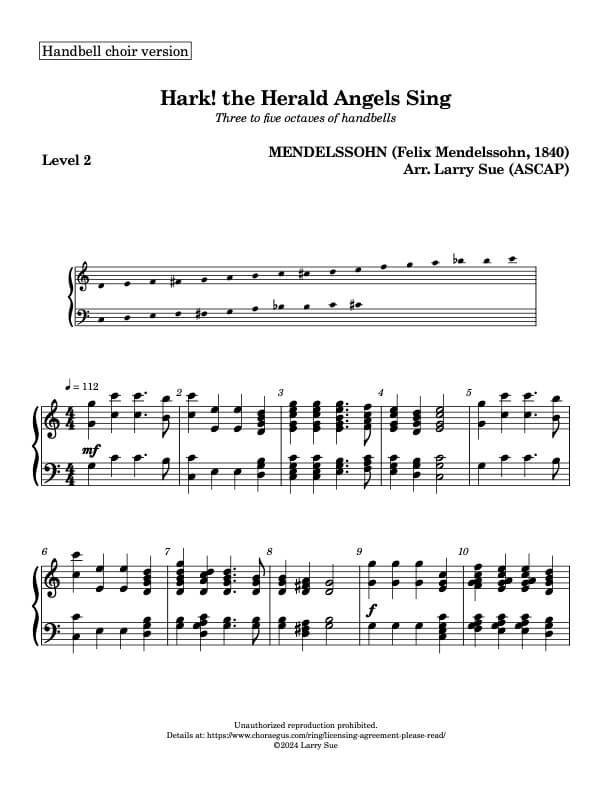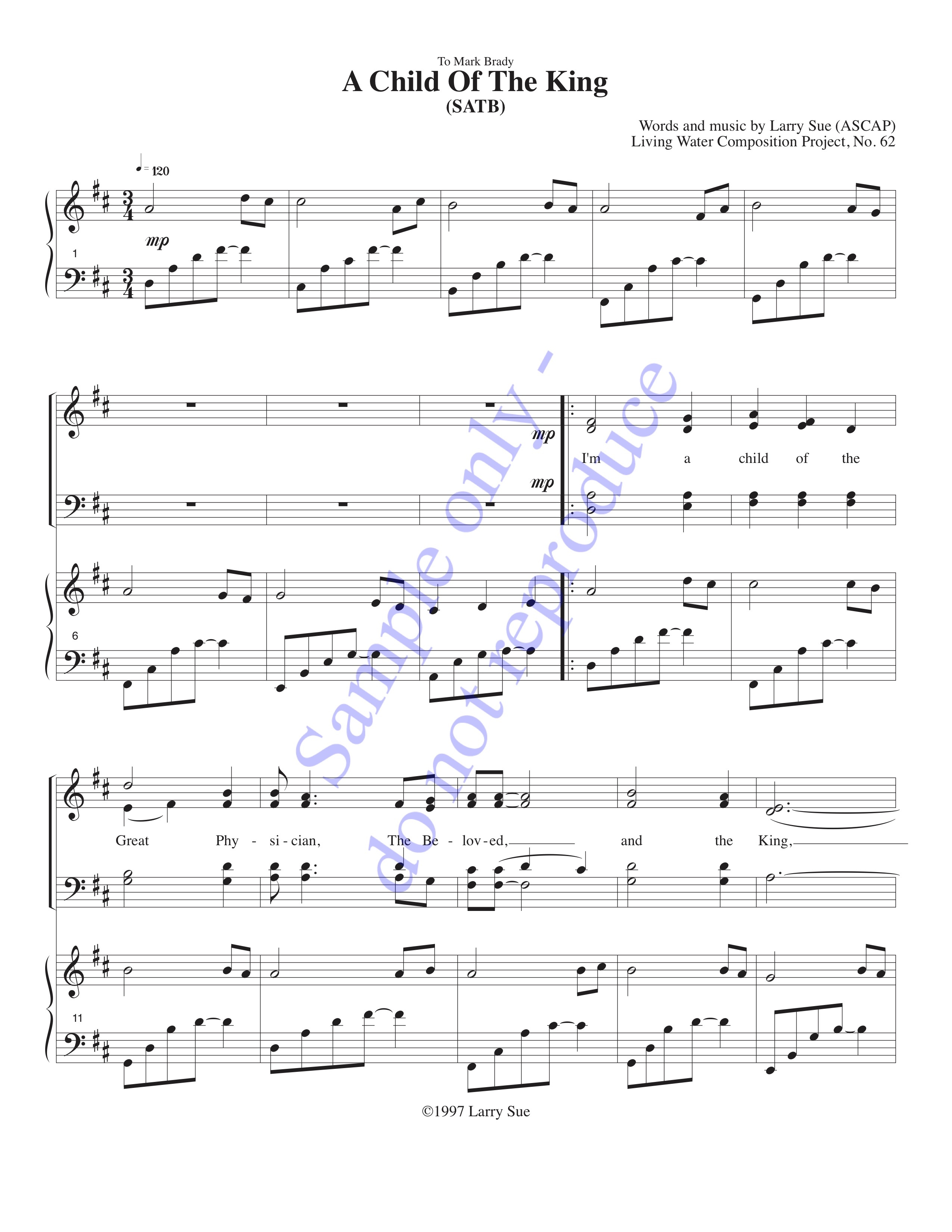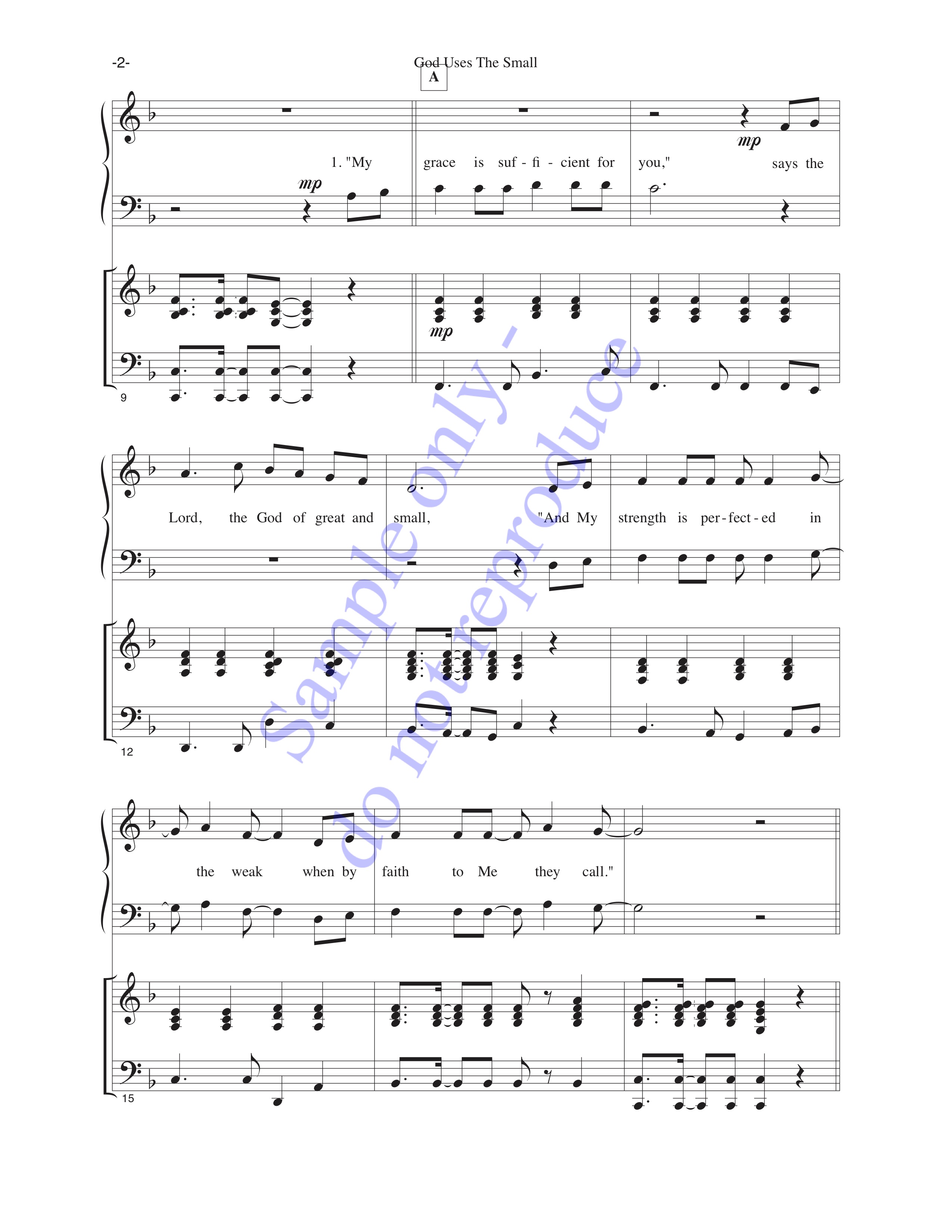We’ve continued to make videos of our works for handbell choir. Here’s a new five-octave version of Newness, an original work for three or five octaves of handbells, plus three octaves of handchimes. Newness can be played either as a Level 2 or a Level 3 piece. To play it as a Level 2 piece, …
Tag: handbells
Handbells were invented in 17-century England as a practice tool for tower bell ringers. They could then rehearse in warmer and cheerier places than belfries - to wit, the local pubs. At some point, someone noticed that it was possible to play tunes (rather than just "changes") on handbells, and so "tune ringing" began. The music available from Choraegus followed the tune ringing tradition as practiced and performed in the modern era,
Come Down, O Love Divine (DOWN AMPNEY) (Handbells, 3 or 5 octaves, plus handchimes, 3 octaves, Level 3-)
Come Down, O Love Divine is one of Ralph Vaughan Williams’ compositions. The lyric speaks of the believer’s need to rely on the Holy Spirit for guidance and strength through all of life. Come down, O Love divine; seek out this soul of mine, and visit it with Your own ardor glowing. O Comforter, draw …
Jan 14
Come Down, O Love Divine (DOWN AMPNEY) – (Handbells, 3 or 5 octaves, plus handchimes, 3 octaves, Level 3-)
This lovely hymn tune was written by Ralph Vaughan Williams. Here’s our handbell arrangement for three or five octaves of handbells plus three octaves of handchimes. Purchasing the handbell choir version of this arrangement grants permission to print and maintain up to fifteen copies for your handbell ensemble; purchasing the single copy version grants permission …
Gaudete! (Handbells, 3-8 octaves, plus handchimes, 3-4 octaves, Level 4+)
Gaudete! is a Christmas song dating back to at least the sixteenth century. You’ll find this arrangement (with optional cajón part!) exciting and fun to play! (For those of you participating in Coppers Classic in March 2023, this is the one you need!) Gaudete, gaudete! Christus est natus Ex Maria virgine, gaudete! Tempus adest gratiæ …
Jan 10
Gaudete! (Handbells, 3-8 octaves, plus handchimes, 3-4 octaves, Level 4+)
Here’s our new arrangement of this sixteenth-century Christmas song! It’s scored for three to eight octaves of handbells plus three or four octaves of handchimes – and if you have a percussionist, there also is a cajón part! Purchasing the handbell choir version of this arrangement grants permission to print and maintain up to fifteen …
Jan 01
Happy 2022, and Thank You!
Happy New Year! It’s time for celebration and a bit of relaxing and making resolutions… uh, okay. Maybe not all of those. Many of us have had a difficult year, and are hoping the next trip around the sun is more user-friendly than the one that’s just ended. We hope you have some optimism, however …
Dec 24
If you’d like to play and hear bells on Christmas Day – Secret Santa redux!
I Heard the Bells on Christmas Day is a pre-Civil War song that sets a poem by Henry Wadsworth Longfellow to the tune WALTHAM by John Baptiste Calkin. The theme is “peace on earth, good will to men”, and the words reflect on how hopelessness will give way to glory. And on Christmas Day 2021, …
Silent Night (STILLE NACHT) – Twelve handbells
Franz Gruber’s lovely carol has enchanted people for two centuries. In case you happen to visit Oberdorf von Salzburg, Austria, you can see the original Silent Night Chapel there. Or… if you’re in the Great Lakes region, you can see the Silent Night Chapel modeled after it in Frankenmuth, Michigan! Silent night! Holy night! / …
Nov 29
Jesus Paid It All (ALL TO CHRIST) – for eight handbells
The message of Jesus Paid It All goes far beyond the title. True enough, He gave Himself to pay the penalty of our sins, but the hymn text also intimates that we have an infinite debt to Him that goes along with receiving the free gift that He offers. Of course… it’s impossible to repay …
Jesus Paid It All (ALL TO CHRIST) – Eight handbells
The message of Jesus Paid It All goes far beyond the title. True enough, He gave Himself to pay the penalty of our sins, but the hymn text also intimates that we have an infinite debt to Him that goes along with receiving the free gift that He offers. Of course… it’s impossible to repay …

